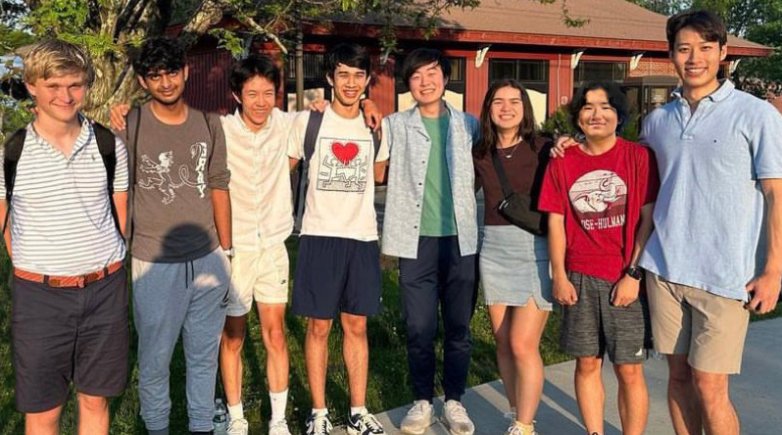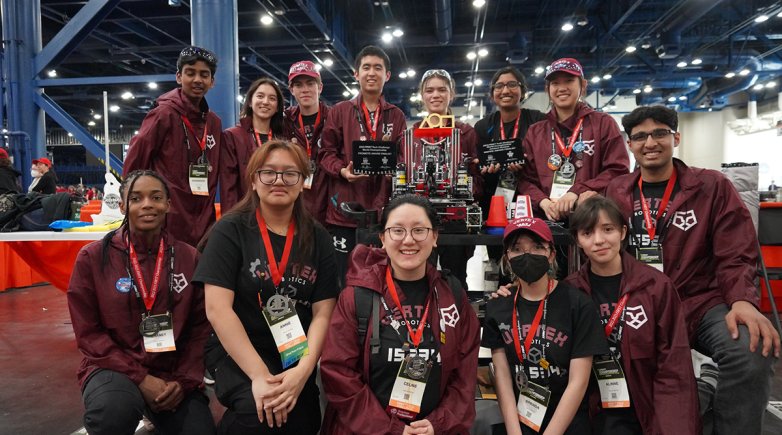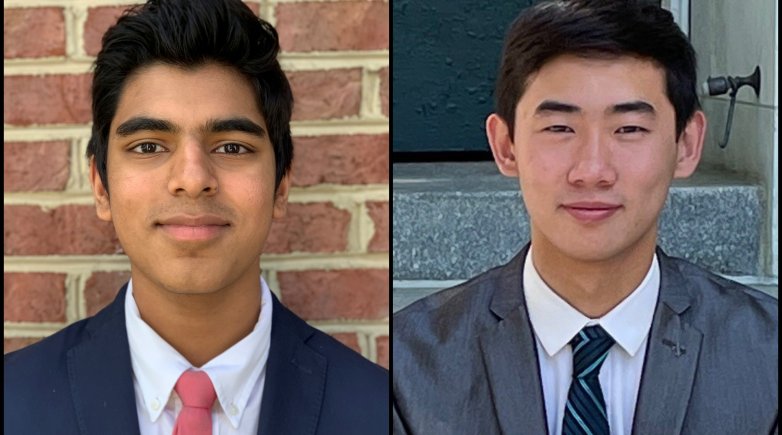Exonians win trip to physics' global epicenter
The team of eight earns all-expenses paid trip to CERN in Switzerland to test proposal in the fall.
An experiment proposal from members of Exeter’s Physics Club has been selected as one of three winners in the 2023 CERN Beamline for Schools competition, earning eight Exonians a trip to Switzerland to put their hypothesis to the test.
Known as “Myriad Magnets,” the team consisting of recent graduates Isabella Vesely '23, Aubrey Zhang '23, and Daniel Jeon '23 and current students Ishaan Vohra '24, Achyuta Rajaram '24, William Lu '24, William Soh '24 and Peter Morand '25 will be invited to Geneva for a two-week stay in September to use one of the European Organization for Nuclear Research's (CERN) particle accelerators. CERN operates the largest particle physics laboratory in the world.
The group's proposal involved building an adjustable arrangement of permanent magnets for steering and focusing a beam of high-energy particles, which are traveling at nearly the speed of light.
“We sought to investigate alternative, more sustainable technologies, for bending and focusing beams. Our design uses only permanent magnets, thus requiring no electricity to operate,” Vohra said. “The design would serve as a proof of concept for future multi-functional and environmentally friendly electromagnet alternatives in particle accelerators.”
The 10th edition of the annual competition, put on by CERN and the German Electron Synchotron (DESY), received 379 entries from secondary schools in 63 countries. One team from the Netherlands, and another from Pakistan joined Exeter as winners of the competition. The winners were selected by a committee of CERN and DESY scientists.
“Beamline for Schools supported us to directly explore and apply new skills, particularly in the intersection of physics and engineering,” said Vesely. “We are excited to put our design to the test in CERN’s cutting-edge facilities and, most of all, work with and learn from some of the world’s best physicists and engineers.”
The team from Exeter built on last year’s experience, when they finished as a runner-up, and worked for months, consulting with experts both on-campus and afar, to design an even more ambitious proposal. Science instructors Jim DiCarlo and Scott Saltman mentored the club members through the process.
“Mr. DiCarlo and Mr. Saltman provided invaluable advice that helped us refine our magnet design and experimental setup, and we also sought advice from external physicists and engineers at the Fermi National Accelerator Laboratory, the Denmark Technical University, and the University of Liverpool,” Vohra said.



